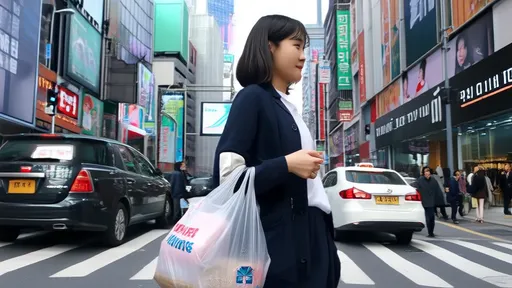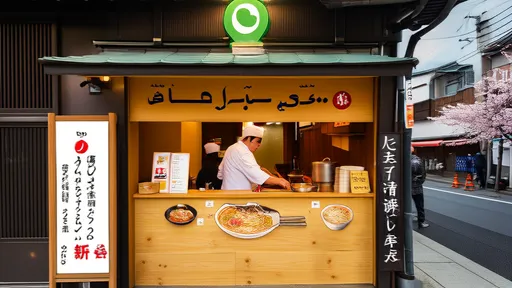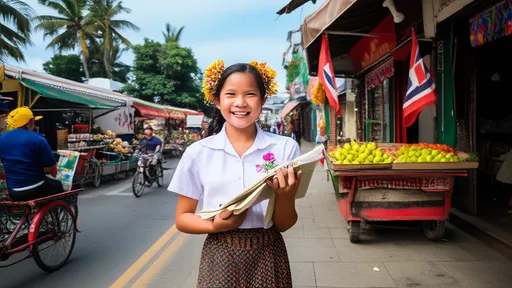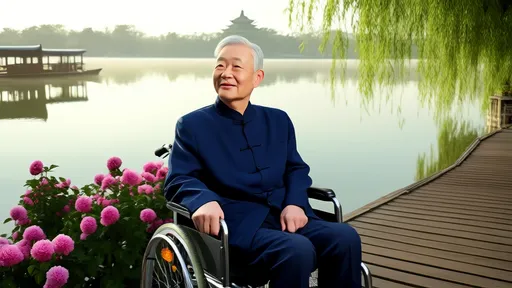South Korea has long been a favorite destination for shoppers, offering everything from cutting-edge electronics to high-quality cosmetics. In recent years, the country's tax refund policies have made it even more attractive for international visitors looking to save money on their purchases. The latest updates to Korea's tax refund system aim to streamline the process while expanding benefits for tourists. These changes come as part of broader efforts to boost tourism and retail spending in the post-pandemic era.
The new regulations, which took effect earlier this year, introduce several significant modifications to how visitors can claim back the 10% value-added tax (VAT) on eligible purchases. Unlike previous systems that required minimum purchase amounts at individual stores, the revised policy allows for cumulative spending across multiple merchants. This means travelers can combine receipts from different shops to reach the threshold for tax refund eligibility, making it considerably easier to qualify for VAT returns.
One of the most notable improvements involves the expansion of instant tax refund services. Major department stores and shopping districts now offer immediate VAT deductions at the point of sale for foreign passport holders. This eliminates the need to queue at airport refund counters later, saving precious time during departure. The instant refund option currently applies to about 3,000 retail outlets across the country, including popular destinations like Myeongdong, Dongdaemun, and Garosu-gil.
The digitalization of tax refund processes represents another major step forward. Visitors can now complete much of the paperwork through mobile applications before arriving at the airport. The Korea Tourism Organization has developed a user-friendly app that allows travelers to scan receipts, submit passport information, and track refund status in real time. This technological integration has significantly reduced processing times and paperwork hassles that previously frustrated many tourists.
Eligibility criteria have also been adjusted under the new framework. The minimum purchase requirement for a single receipt has been lowered from 30,000 KRW to 20,000 KRW (approximately $15), while the maximum refund amount per transaction has increased. Additionally, the system now accommodates more payment methods, including various mobile payment options favored by international visitors. These changes reflect the government's recognition of evolving consumer behavior and spending patterns among tourists.
Airport procedures have undergone substantial improvements as well. Dedicated tax refund kiosks equipped with advanced scanning technology can now process claims in minutes. Incheon International Airport, the country's main gateway, has tripled the number of refund counters while implementing a more efficient queuing system. For those who prefer cash refunds, the maximum amount has been raised, and additional currency options are now available to reduce exchange rate losses for travelers.
The revised policy places particular emphasis on supporting small and medium-sized businesses. Many local shops that previously couldn't participate in the tax refund program due to complex registration requirements can now easily join the system through simplified online procedures. This expansion means visitors can enjoy tax-free shopping at a much wider range of establishments, from boutique fashion stores to traditional craft workshops.
Implementation challenges have emerged despite these positive changes. Some visitors report confusion about differing refund rates between product categories, while others note occasional technical glitches with the new digital systems. The government has responded by increasing multilingual support services and staff training programs to ensure smoother operation of the revised tax refund framework.
Looking ahead, Korean authorities have announced plans to further enhance the tax refund experience. Pilot programs testing facial recognition technology for identity verification are underway at select locations. Future updates may include integration with popular e-commerce platforms, allowing international shoppers to claim refunds on online purchases made before their trips. These innovations position Korea as a leader in tourist-friendly tax policies within the Asian market.
The economic impact of these changes is already becoming apparent. Early data shows a marked increase in average spending per foreign visitor since the new rules took effect. Retail analysts attribute this growth not only to the enhanced refund system itself but also to improved consumer confidence stemming from the more transparent and accessible process. As global travel continues to recover, Korea's progressive approach to tax refunds may well become a model for other shopping destinations worldwide.

By /Aug 13, 2025

By /Aug 13, 2025

By /Aug 13, 2025

By /Aug 13, 2025

By /Aug 13, 2025

By /Aug 13, 2025

By /Aug 13, 2025

By /Aug 13, 2025

By /Aug 13, 2025

By /Aug 13, 2025

By /Aug 13, 2025

By /Aug 13, 2025

By /Aug 13, 2025

By /Aug 13, 2025

By /Aug 13, 2025

By /Aug 13, 2025

By /Aug 13, 2025

By /Aug 13, 2025

By /Aug 13, 2025

By /Aug 13, 2025